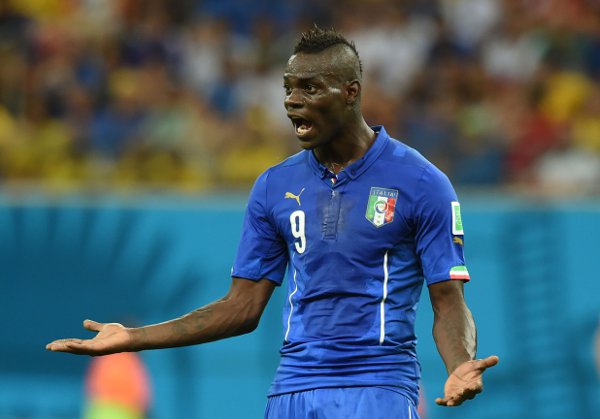IF YOU’RE a glass half-empty kind of person, you might look on soccer World Cups not only as a festival of the best the beautiful game has to offer, but also a painful reminder of time’s tremendous hurry.
It seems about a fortnight ago that the only thing in life that mattered more than Italia 90 was collecting stickers related to Italia 90.
In 1990, I and most other excited young lads I knew could recite every world cup participant’s likely starting 11, as well as the main players for all 92 English clubs, and we had a similar level of knowledge about football, hurling and rugby.
When you grow up, or at least grow older, there just isn’t time to keep abreast of every major player and game in the sports that matter in your part of the world.
Something has to go and thus, like many of my age group, I’ve gone from being able to debate which formation Costa Rica should go with in 1990 to asking questions such as “Who’s Joel Campbell?” in 2014. Keeping up to date with football means sacrificing all but fairly routine knowledge of what’s going on in soccer.
This lack of real in-depth knowledge does not, however, dull the desire to appear at least a little knowledgeable when soccer is discussed. In that context, you might be tempted to resort to national stereotypes to make it sound as if you know what you’re talking about.
Thus you might spout nonsense about how Fred’s dive against Croatia and Chile’s uncertainty against Australia were both typically South American. Or about how Nigeria’s athleticism will pose problems, how one should under no circumstances write off the Germans.
You might question whether France have the heart or Italy the temperament. You might talk about Brazil playing to a samba beat, or how England’s lack of technique will outweigh their undoubted team spirit.
You’ll find some older commentators and more than one tabloid newspaper that will resort to this colour-by-numbers analysis but anyone with even a passing interest in the world game will recognise it as false.
 Do Italy have the temperament to win Group D?
Do Italy have the temperament to win Group D?There are 32 teams playing in 32 subtly different ways in Brazil that have little to do with how we perceive their country. Most reasonable and clued-in soccer fans, writers and analysts know this and know that resorting to stereotypes will mark them out as a bluffer.
It’s about time we realised that such easy conclusions have no relevance in our own code of football, either. An obvious example reared its tiresome head more than once this week as Meath made their championship bow and many sages told us that, like the Germans, only a fool would write the Royals off.
We are already dreading the next day that Mick O’Dowd’s men come from behind to win a close game because then the same old know-alls will tell us about Meath’s championship know-how, never-say-die attitude and ability to win close games.
Give us a break.
Meath have done little for years apart from losing close games and failing to overturn deficits. You most certainly can write them off, at least in terms of silverware, and anyone with enough common sense to do so has been proved right time and again since 1999, a couple of Leinster titles aside.
While losing a long line of big matches has done little to tarnish Meath’s reputation, winning them year in and year out has done little to rehabilitate Mayo’s. Indeed, despite a series of embarrassing championships in recent times, Galway football is still held in higher esteem by the stereotypers.
Anyone who watches a fair amount of football could come up with a dozen or more examples of their own. They know that there are Kerry forwards who lack guile under pressure.
They know that Kildare’s defence is far inferior to their attack. They know that not every Laois forward lacks substance to the same degree as they possess style. That talk of Dublin’s athleticism, while true, masks the greater truth that their ball-playing ability was as much behind last season’s victory as their pace.
Down are another prime case, carrying the tag of a team with uncanny self-belief who have some kind of championship aura that deflates the opposition. Neither quality has stopped them losing to supposedly cowed inferiors in Ulster for 20 years running, because, we would suggest, neither quality actually exists.
Of course, the day will come when Down, Galway and Meath all win big again. It would be nice if we realised that, just like the team that prevails in Brazil, good footballers playing good football, rather than some intangible genetic know-how, will be behind their success.

